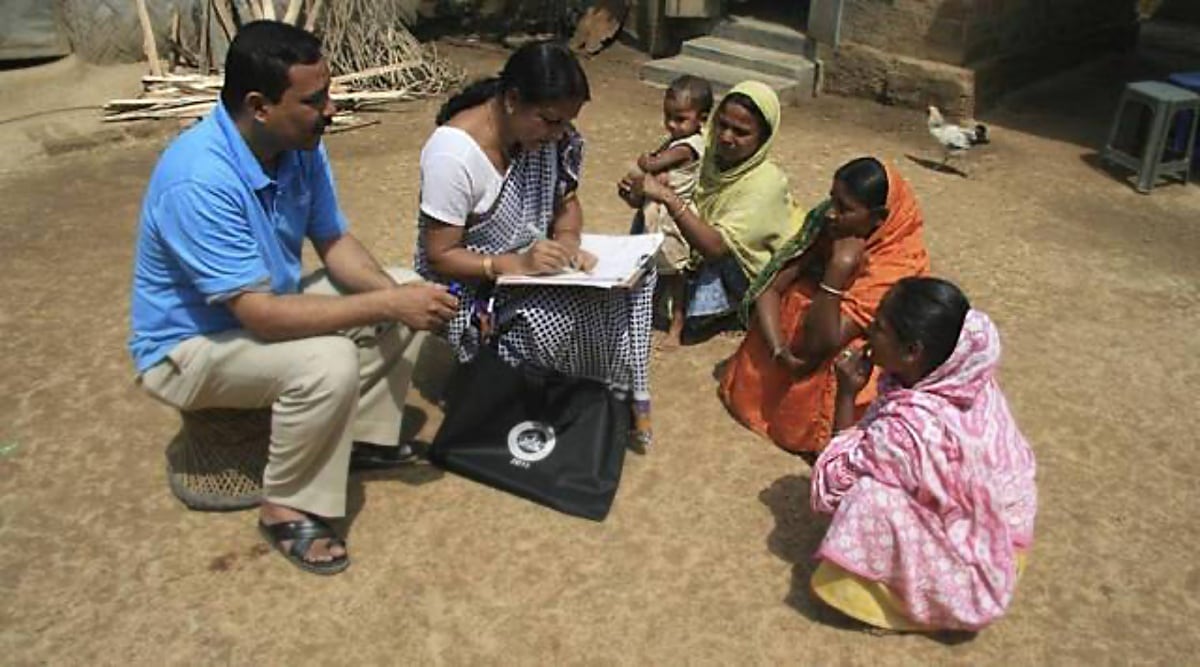Census to be delayed again, deadline for freezing administrative boundaries pushed to January 1, 2024
Of Rs 1.96 crore from the Union Budget for 2023-24, the budget allocated for Census 2021 has been slashed from Rs 3,676 crore in the last budget to Rs 1,564 crore in this budget.
 Registrar General of India grants extra time to freeze administrative boundaries until 2024. (Representational Photo)
Registrar General of India grants extra time to freeze administrative boundaries until 2024. (Representational Photo) The Census enumeration scheduled to take place in 2021 has been pushed to 2024-25 until further orders. In a letter sent to all states and Union Territories last month, the office of the Registrar General of India (RGI) has extended the deadline for freezing administrative boundaries to January 1, 2024.
Since the Census enumeration can only begin a few months after administrative boundaries are frozen and as general elections are scheduled early next year, the possibility of a Census in 2023 is ruled out. Also, the Census enumeration will be preceded by house-listing enumeration where the exercise for National Population Register (NPR) is to be held.
Earlier, the deadline for jurisdictional changes was June 30, 2023, and before that, December 31, 2022.
Of Rs 1.96 crore from the Union Budget for 2023-24, the budget allocated for Census 2021 has been slashed from Rs 3,676 crore in the last budget to Rs 1,564 crore in this budget. “Census, survey and statistics/ RGI, includes provisions for the office of the Registrar General and Census Commissioner of India and various schemes of RGI, including National Population Register and expenditure on Census, 2021. In 2021-22, a budget of Rs 505.12 crore was allocated, and Rs 3,276 was allocated in the last budget, but it was later revised,” according to the budget.
In May, Union Home Minister Amit Shah said the government is planning to bring a bill in Parliament to link data related to birth and death with electoral rolls and the overall development process. Shah had said the census is a process that may form the basis of the development agenda. Digital, complete, and accurate census figures will have multi-dimensional benefits, he said, adding planning based on the census data ensures development reaches the poorest of the poor.
“If the birth and death certificate data are preserved in a special way, development works can be planned properly. A bill to link the death and birth register with electoral rolls will be introduced in Parliament. Under this process, when a person turns 18, his or her name will be automatically included in the electoral rolls. Similarly, when a person dies, that information automatically will go to the Election Commission, which will start the process of deleting the name from the voters’ list. Earlier, the development process happened in fragments, because adequate data for development was not available,” he had said.
In March last year, the government notified certain amendments to Census Rules to allow citizens to self-enumerate themselves in the Census and National Population Register (NPR). The development had led to speculation that the house-listing phase of the Census may begin last year itself.
In the letter, the RGI cited Covid-19 as a reason for extending the deadline. The same reason has been given for multiple such deadlines since 2020.
“Owing to the prevailing conditions due to the Covid-19 pandemic, danger of increased probability of its spread and the preoccupation/ involvement of the States/UTs in speeding up the vaccination drive against Covid-19 in the country, it would not be possible to start the work of ensuing Census this year. Also, the time period for conducting the ensuing census is not yet decided,” the letter for the last deadline extension had said.
As per Rule 8(iv) of Census Rules, 1990, the boundaries of the administrative units shall be frozen from the date intimated by the Census Commissioner, which shall not be earlier than one year from the Census reference date.
“As such, it has now been decided by the competent authority to further extend the date of freezing of boundaries up to 31st December, 2022. The boundaries of the administrative units for the ensuing Census will now be frozen on 31 December, 2022,” the letter had said.







